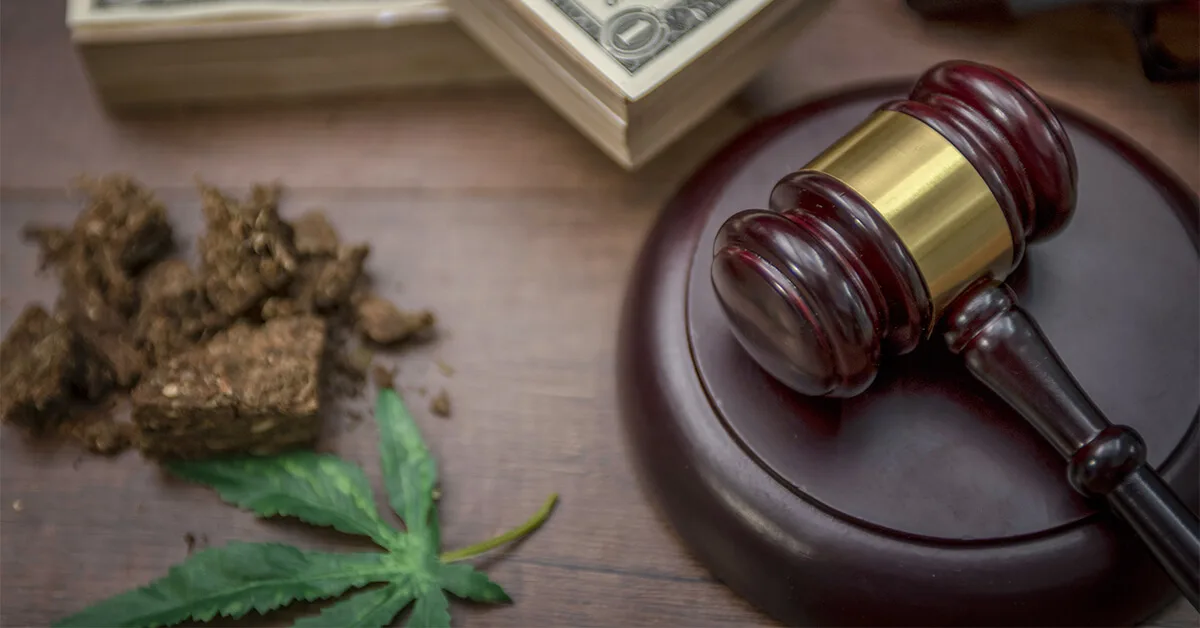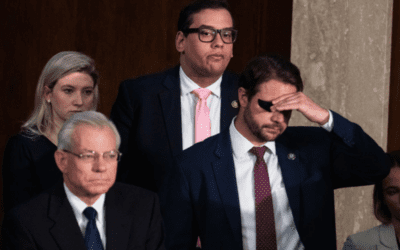
Image via Boonchai Wedmakawand, Getty Images
Low-level marijuana offenses can be expunged from criminal records beginning July 21, 2021.
This article will be updated with county-specific information regarding expungement as it becomes available.
Proposition 207 passed in Arizona with a resounding 60% support, making it legal for Arizonans 21 years and over to use recreational marijuana.
A key element of Proposition 207 is the opportunity to expunge a criminal record, which can impede employment, nullify the right to vote and harm reputations.
So far, counties are still working to set up a process that will allow previous offenders to expunge marijuana-related offenses from their criminal record. Expungements are scheduled to begin on July 12, 2021. The Copper Courier will update this article with county-specific information as it becomes available.

Expunging Previous Convictions
Proposition 207 is the first voter measure in Arizona that offers expungement, according to Jared Keenan, a senior staff attorney at American Civil Liberties Union of Arizona. But the process may differ in each of Arizona’s 15 counties, depending on the population and whether the county attorney supported the measure.
Each of the counties reached by The Copper Courier said they do not intend to object expungement requests.
Prosecutors can petition against moves to expunge records. The Maricopa County Attorney’s Office has not given a stance on expungement but has announced it will immediately drop all pending and unfiled charges of marijuana possession based on “the will of the voters.”
Currently, Keenan said, all marijuana convictions are felonies, which means convicts could lose their right to vote, their access to public housing and food assistance, and their eligibility for federal student loans. A criminal record also makes it harder to get a job.
The proposition does not specify the expungement process but sets aside $4 million to help fund it. Keenan expects nonprofit organizations like his will apply for some of that money, allowing them to provide forms, help convicts fill them out and file the petitions with the court. The money also could fund attorney positions to work on expungement cases.
Drug offenses, particularly marijuana, disproportionately affect people of color, but Keenan said Proposition 207 won’t resolve the problem of racial disparity in the criminal justice system on its own.
“It will lower the number of non-white people being arrested for marijuana,” he said, “ but those that are concerned with racial disparities and arrest rates and conviction rates need to continue working to make sure that we address those problems.”
But, he added, “It’s definitely a step in the right direction.”
The passage of Prop 207 comes four years after Arizona voters narrowly defeated a proposal to legalize recreational pot, with Gov. Doug Ducey and fellow Republicans in the Legislature refusing to change Arizona’s strict marijuana laws.

Maricopa County
Maricopa County Attorney Spokeswoman Jennifer Liewer announced Nov. 9 that all pending cases for possession of an ounce or less of marijuana would be dismissed.
The dismissals would also apply to cases involving possession of paraphernalia, as well as marijuana concentrates.
Liewer said, “We don’t want people getting arrested or sitting in jail on a charge that Arizona voters believe is no longer a crime.”
Santa Cruz County
Some counties have been less proactive about embracing Arizona’s new marijuana laws. USAToday published an interactive map that shows a county-by-county election results map. It reveals that 58% of residents in Santa Cruz County wanted the measure to pass.
The Copper Courier reached out to Santa Cruz County Attorney George Silva to ask about marijuana charge expungements in that county but has not heard back.
Pima County
In Pima County, the second largest county in the state that includes Tucson, County Attorney Barbara LaWall told Tucson.com not much would change locally because, for years, “local law enforcers have hardly ever made arrests solely for possession of less than an ounce of marijuana — the amount about to become legal for adults 21 and older under Proposition 207.”
LaWall explained that possession charges were “almost always” filed only when someone is being arrested for other more serious crimes.
LaWall said the handful of marijuana possession cases that do make it before local courts would be dropped once the initiative became law on Nov. 30. This includes charges involving possession of up to 5 grams of cannabis concentrates like wax and hashish.
“Despite the ballot initiative folks’ claims to the contrary, Pima County law enforcement does not spend their time policing small-time, low-level marijuana crime,” LaWall said. “They have always focused on far more pressing crime issues. Prop. 207 won’t change a great deal regarding law enforcement or prosecution here in Pima County.”

Yavapai County
Marijuana-related charges in Yavapai County will also be expunged. Yavapai County Attorney Sheila Polk’s Office said it will dismiss all pending charges of marijuana possession and associated paraphernalia charges for conduct covered by Prop 207, instead of continuing to expend resources on these cases.
Polk told Navajo-Hope Observer the dismissals will include all cases pending in Early Disposition Court, cases pending trial, and cases set for sentencing or probation violation hearings.
“What changed is that the provision that prohibits driving with any amount of THC in your system no longer applies,” Polk explained. “But if law enforcement can prove that someone who used marijuana is impaired to the slightest degree, that will still be a viable prosecution that we will charge and prosecute moving forward.”
Mohave County
Mohave County Attorney Matt Smith estimated they were likely looking at a minimum of 25 cases being dismissed under this new proposition, while Maricopa County expects around 6,000 cases to be dismissed.

Cochise County
Meanwhile, Cochise County officials said they would likely have to deal with misdemeanor marijuana possession cases on a case-by-case basis because there isn’t an easy way to search specific charge types within their system.
Adianna Bermudez and Taylor Tasler-Oatley contributed to this report.
Continue Reading: Blaze On: Recreational Marijuana Is Officially Legal in Arizona

He said what? 10 things to know about RFK Jr.
The Kennedy family has long been considered “Democratic royalty.” But Robert F. Kennedy, Jr.—son of Robert F. Kennedy, who was assassinated while...

Here’s everything you need to know about this month’s Mercury retrograde
Does everything in your life feel a little more chaotic than usual? Or do you feel like misunderstandings are cropping up more frequently than they...

Arizona expects to be back at the center of election attacks. Its officials are going on offense
Republican Richer and Democrat Fontes are taking more aggressive steps than ever to rebuild trust with voters, knock down disinformation, and...

George Santos’ former treasurer running attack ads in Arizona with Dem-sounding PAC name
An unregistered, Republican-run political action committee from Texas with a deceptively Democratic name and ties to disgraced US Rep. George Santos...




